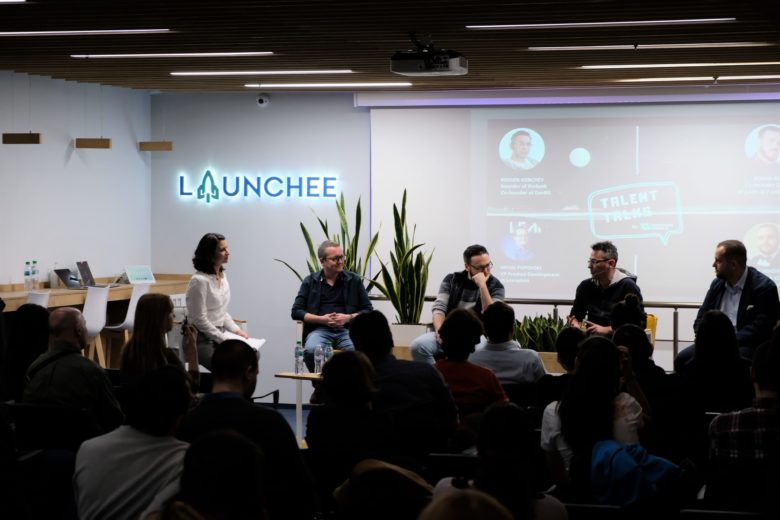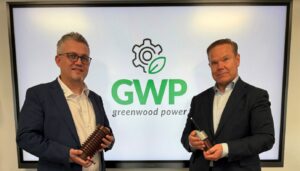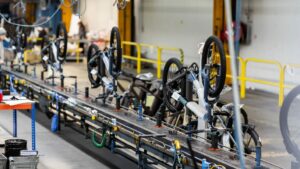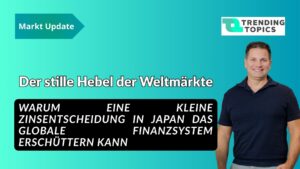Rossen Genchev: Would You Still Be A Software Developer If You Earned 1000 Leva Per Month?

What “office environment” are IT engineers and developers looking for when choosing an employer? Are the cool guys who everyone wants to hire really so interested in the lounge area of the office or there’s something more they are looking for? Trending Topics’ first ‘Talent Talks’ event ‘Ping-pong table and office massages are nice, but…‘ focused on these questions and took place last Thursday, on the 5th of March.
We had four amazing panelists – Vassil Popovski, Rossen Genchev, Boyan Bonev, and Anthony Ivagnes – who shared their perspectives on why they started working in tech, does Bulgaria stand a chance of becoming a hub for product innovation and development, and are high salaries and job hoppers really a problem for the IT industry.
Those who missed it (or want to relive it once again) can watch the entire discussion here.
A few highlights
Some of our panelists did have ping-pong tables in their offices, others 3D printers and PlayStations, third were thinking about a BBQ. Nonetheless, they were pretty much on the same page about their reasons to start a career in IT – passion for technology and coding.
Rossen Genchev: “Would you still be a software developer if you earned 1000 leva per month? I think that when you choose your profession it should never be about money or perks but what you love doing.”
In the past years, the Bulgarian tech ecosystem has built its image as an attractive outsourcing destination. One of the reasons for that has been the comparatively lower wages of programmers. But due to the shortage of talent now this is changing very fast, isn’t it? Both salaries and expectations towards employers are growing.
How is this affecting the tech ecosystem as we know it? Aren’t we running the risk of stagnation in the tech sector or even sending away foreign investors? Here is what Genchev had to share here:
“I think it’s a natural evolution. The outsourcing industry is a very secure investment – You pay for some developers, throw them some garbage, they do another garbage and some transaction happens out of all this. That’s okay but over time you get people dreaming a little bit bigger and thinking: “Let’s create a product, let’s try to build the next Google or Facebook.” Of course, most of this is bulshit but it’s accelerating the whole ecosystem and then investors add more fuel. We are in the middle of our way to becoming a really good destination for IT. I think it’s too early to say that we are going to be Silicon Valley for Central and Eastern Europe but after 10 years, if we keep doing well, it’s possible”
Vassil Popovski added a business layer to the conversation: “The economics of outsourcing and product companies are different. In an outsourcing company, you are growing by growing your headcount and you have certain limits on the salaries you can pay. Sometimes, you can even afford to hire lower-quality engineers. With a product company where you expect you expect to sell something multiple times, you cannot afford low quality. So, product companies usually target for the best.”
Anthony Ivagnes didn’t see a big problem with the growing compensations and benefits but with talent mindset: “Salaries are okay but I definitely think we have a big challenge of shifting the mentality from ‘doers’ to ‘enablers.”
Later Ivagnes added: “If an employee came to me and said that he wants to start his own company, I will be willing to help them. It’s just like what happened with my previous employer who asked me “Do you want me to be your first customer?”
Are the large international corporations opening R&D centers in Bulgaria a good or bad thing for the Bulgarian tech ecosystem?
Rossen: Let’s first say that a startup ecosystem and an IT ecosystem are not the same. As a startup guy, I don’t think it’s beneficial when a big international company establishes an office in Bulgaria – because it increases the competition for talent. And many of the talents in Bulgaria still prefer a secure life and doing startups is a bit different.
“We have a limited pool of talent. If we want to grow as an ecosystem, we need to increase this pool. There are different ways to achieve that – for example, via education or by attracting highly-talented people from abroad.”
Boyan Bonev certainly agreed:
“There is a myth that Bulgarian engineers are very strong. I don’t think they are. Engineers in Amsterdam are better – not because they’re the best Dutch engineers but because they’re the best engineers from Belarus, Russia, Poland, and other countries, who have decided: “Amsterdam is a great city, I am going to live there and collect a good salary. If we are unable to attract foreign talent and are decided to compete with the existing local pool, at some point investments will pass out and it’s not going to be pretty.”
The other problem is that young people at universities in Bulgaria have no clue what is product development and what the startup ecosystem looks like. Those are guys that need to be supported and they need to be able to dream. They should know that 50k EUR is accessible funding to do a product even if you are 20-year-old.
Vassil Popovski disagreed: “I think that we already have everything that’s necessary for doing high-quality products here. What we are missing is a Bulgarian unicorn but I expect we would have one within 5 years. There are some great examples of local companies that have the potential to become unicorns – Gtmhub, Payhawk.
As for the big companies that come and attract talent with high salaries, well, maybe, startup founders should focus on people with a different mindset. When I was building Connecto, some of my guys had pretty good offers – one of them had an offer for 12, 000 BGN but joined Connecto for 5000 BGN because we were offering something different.
One of the last questions of the night was: Should we grow as an ecosystem instead of competing so much? Boyan Bonev had a strong stance on the topic:
“A lot of the communities growing in Sofia right now are associated with branding and I don’t think that’s sustainable in any way. I think that if you build a community around a brand and say that you are going to represent that brand, people lose interest
To enable other talents to join, we should have more inclusive communities. If every company in Sofia tries to do it on its own, then it’s just a fragmented mess. The same events one after the other.
If you look at meetups abroad, you will see topics, things to be discussed. In Sofia, it’s all brands – the meetup of X, the meetup of Y.”
What talent-related topics would you like to see discussed in future events? Mail us at newsroom@trendingtopics.bg





























